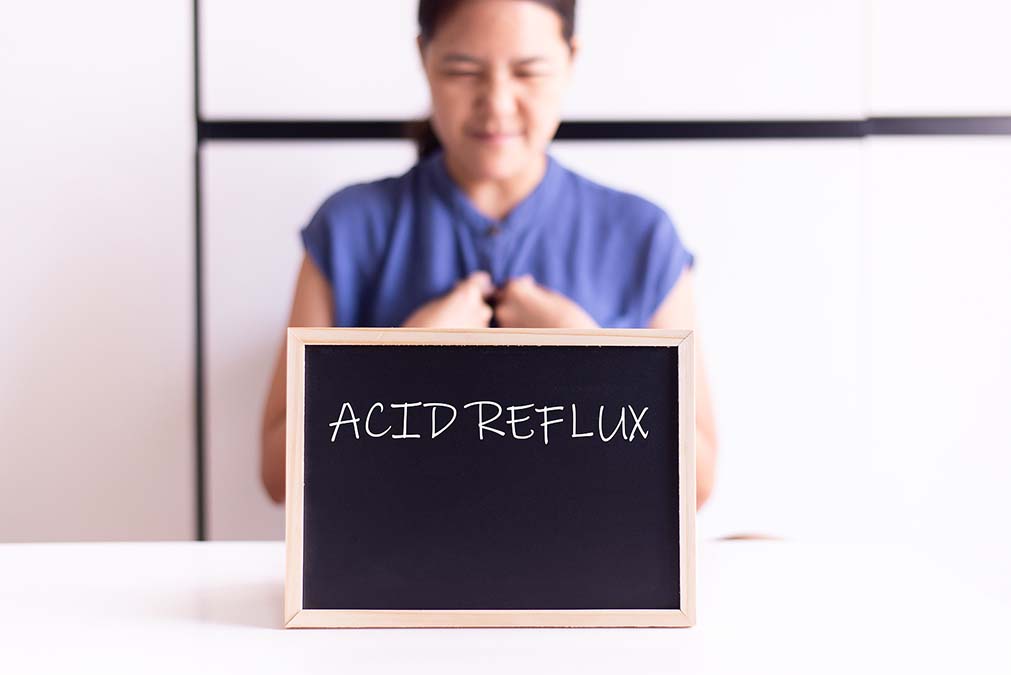 Acid reflux doesn’t only cause the horrendous stomach, chest, and throat pain that are all too familiar.
Acid reflux doesn’t only cause the horrendous stomach, chest, and throat pain that are all too familiar.
We may not even think of other symptoms associated with acid reflux, but they’re just as serious.
And a new study just published in The World Chinese Journal of Digestology reveals a simple and even enjoyable solution for these secondary effects of acid reflux.
These researchers noticed that people with acid reflux tend to have very negative emotions about their condition, partly because of their misunderstanding of acid reflux itself, and partly because of the psychological pressure of trying to manage it.
Since negative emotions have a destructive effect on sleep quality, these scientists decided to investigate whether mindfulness stress-reduction therapy could improve the psychological status and sleep quality of elderly patients with acid reflux.
They recruited 120 patients who sought treatment for acid reflux at a hospital between May and October 2020. They were divided into two groups: 60 participants received the standard treatment while the other 60 received the standard treatment combined with mindfulness stress-reduction therapy.
The routine medical care involved medication, health education, information on acid reflux, a prescribed diet, sports care, and psychological treatment.
The mindfulness therapy was given in five 30-minute sessions every two days over a period of 10 days.
Before and after the 10-day treatment period, the researchers asked the participants to complete the Depression-Anxiety-Stress scale, the Mood State Scale, and the Pittsburgh Sleep Quality scale to examine their depression, anxiety, stress levels, negative emotions, and sleep quality.
While both groups experienced some improvement on all of these measurement instruments, the mindfulness therapy group displayed much greater improvement.
The greatest difference between the two groups was observed for stress and anxiety, proving that mindfulness was effective at reducing both.
It made no difference regarding energy, fatigue, ego, anger, or panic.
Both groups experienced improvements in sleep quality, sleep duration, sleep efficiency, and daytime function, along with reduced sleep disorders and lower use of hypnotic drugs, The improvement was much larger in the mindfulness therapy group than in the control group.

 Overcoming IBD
Overcoming IBD Multiple Sclerosis
Multiple Sclerosis Banishing Bronchitis
Banishing Bronchitis Gum Disease Gone
Gum Disease Gone Overcoming Onychomycosis
Overcoming Onychomycosis Neuropathy No More
Neuropathy No More The Prostate Protocol
The Prostate Protocol Brain Booster
Brain Booster
 Ironbound
Ironbound
 Solution for Shingles
Solution for Shingles
 The Bone Density Solution
The Bone Density Solution
 The Ultimate Healing Protocol
The Ultimate Healing Protocol
 The Parkinson's Protocol
The Parkinson's Protocol
 The Chronic Kidney Disease Solution
The Chronic Kidney Disease Solution
 Overthrowing Anxiety
Overthrowing Anxiety The Fatty Liver Solution
The Fatty Liver Solution The Hypothyroidism Solution
The Hypothyroidism Solution
 The End of Gout
The End of Gout The Blood Pressure Program
The Blood Pressure Program
 The Oxigized Cholesterol Strategy
The Oxigized Cholesterol Strategy
 Stop Snoring And Sleep Apnea Program
Stop Snoring And Sleep Apnea Program
 The Arthritis Strategy
The Arthritis Strategy The Vertigo & Dizziness Program
The Vertigo & Dizziness Program The 3-Step Diabetes Strategy
The 3-Step Diabetes Strategy Hemorrhoids Healing Protocol
Hemorrhoids Healing Protocol The Erectile Dysfunction Master
The Erectile Dysfunction Master Weight Loss Breeze
Weight Loss Breeze The IBS Program
The IBS Program The Insomnia Program
The Insomnia Program The Migraine and Headache Program
The Migraine and Headache Program The Neck Pain Solution
The Neck Pain Solution The Menopause Solution
The Menopause Solution The Ejaculation Master
The Ejaculation Master The TMJ Solution
The TMJ Solution The Acid Reflux Solution
The Acid Reflux Solution The Fibromyalgia Solution
The Fibromyalgia Solution The Psoriasis Strategy
The Psoriasis Strategy